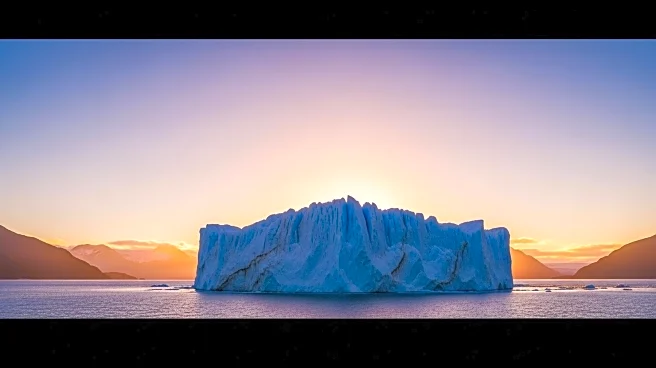What's Happening?
Switzerland's glaciers have experienced a significant reduction in volume this year, with a 3% decrease marking the fourth-largest annual retreat on record. This decline is attributed to global warming, as reported by Swiss glaciologists. The Swiss glacier monitoring group GLAMOS and the Swiss Academy of Sciences highlighted that the ice mass in Switzerland has decreased by one-quarter over the last decade. The melting was exacerbated by a winter with low snow depth and heat waves in June and August, leading to early depletion of snow reserves. Switzerland, home to nearly 1,400 glaciers, has seen more than 1,000 small glaciers disappear. The retreat of glaciers is impacting hydropower, tourism, farming, and water resources across Europe.
Why It's Important?
The rapid melting of Swiss glaciers is a stark indicator of the accelerating effects of global warming, with significant implications for various sectors. The loss of ice mass affects hydropower generation, a critical energy source for Switzerland and neighboring countries. Tourism, particularly in regions known for their glacial landscapes, faces challenges as the natural beauty diminishes. Additionally, the retreat impacts water resources, crucial for agriculture and daily consumption. The situation underscores the urgent need for global climate action to mitigate further environmental degradation and its socio-economic consequences.
What's Next?
Swiss authorities are on heightened alert for changes in the landscape, as the retreat of glaciers can lead to unstable ground and shifting mountains. This instability poses risks to local communities, as evidenced by a recent incident where a mass of rock and ice covered nearly all of the southern village of Blatten. Continued monitoring and adaptation strategies are essential to address these challenges. Efforts to slow the retreat and adapt to its impacts will likely involve increased investment in climate research and sustainable practices.
Beyond the Headlines
The retreat of glaciers in Switzerland is not only a local issue but a global concern, reflecting broader environmental changes. The melting glaciers contribute to rising sea levels, affecting coastal regions worldwide. The phenomenon also serves as a visual reminder of the tangible impacts of climate change, potentially influencing public opinion and policy decisions. Ethical considerations arise regarding the responsibility of industrialized nations to lead efforts in combating climate change and supporting affected regions.










